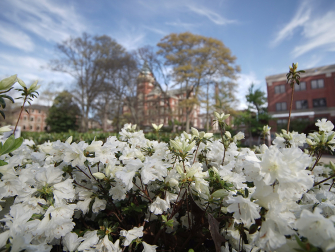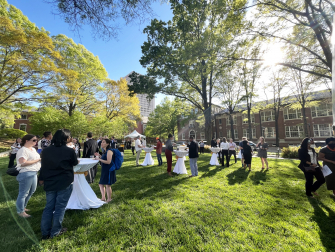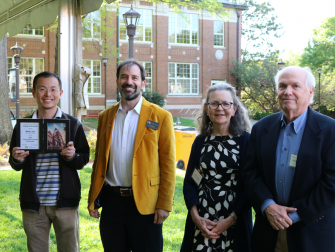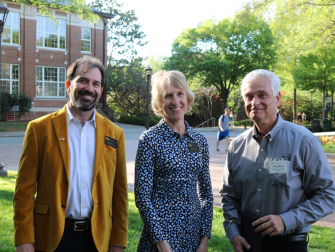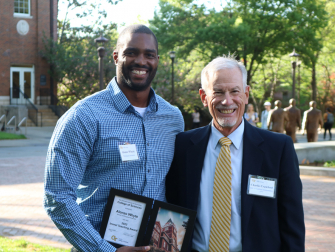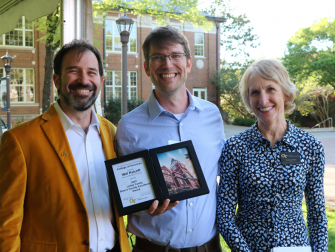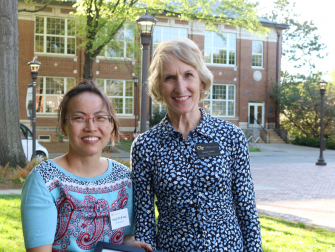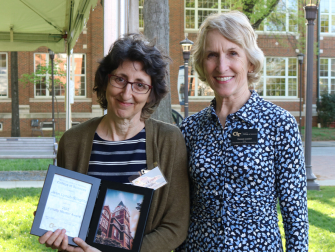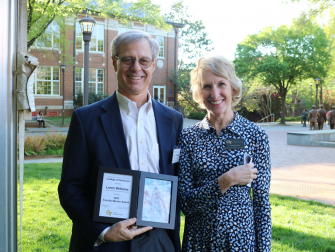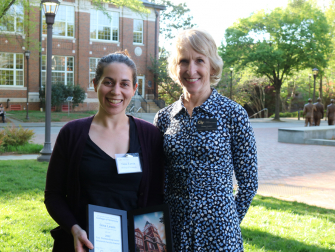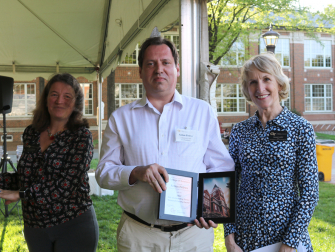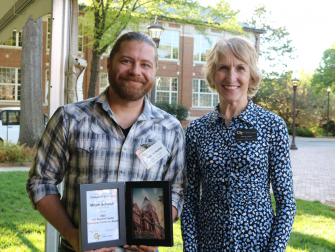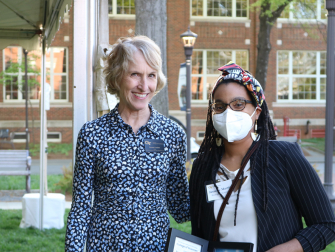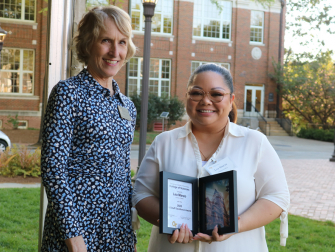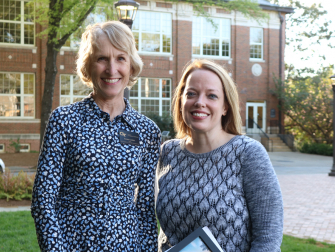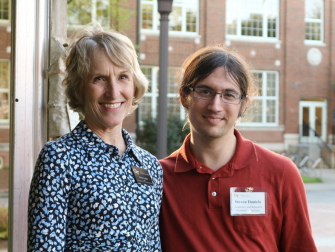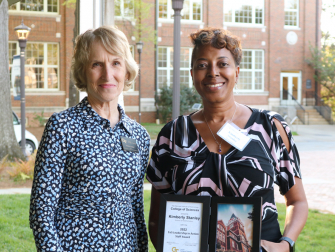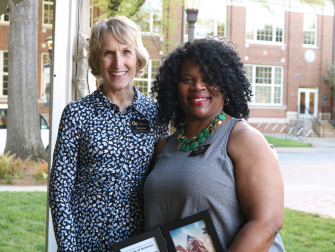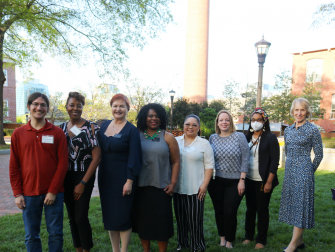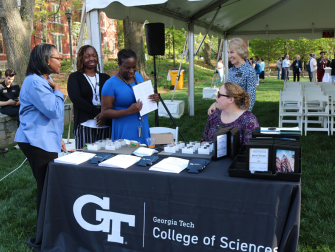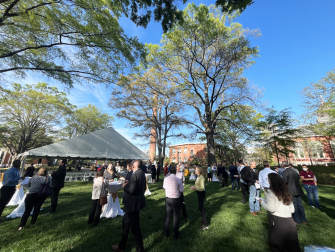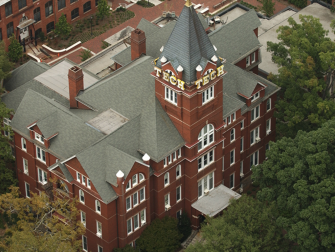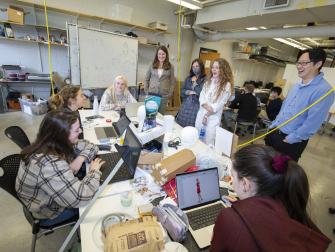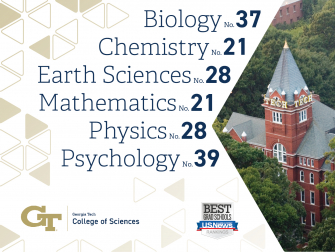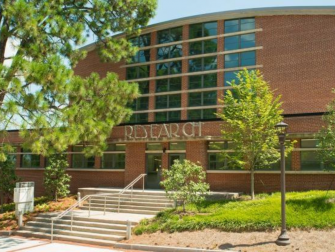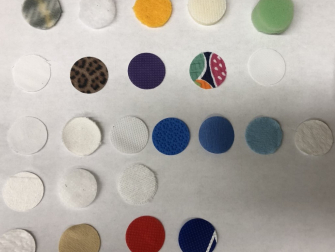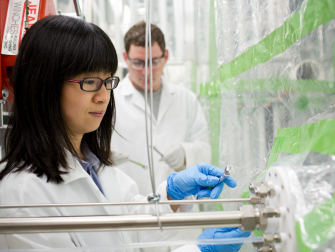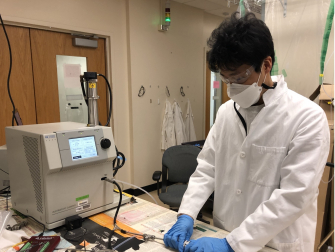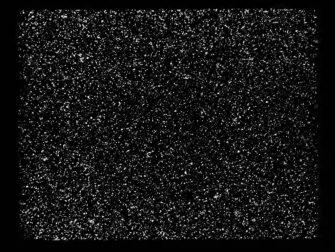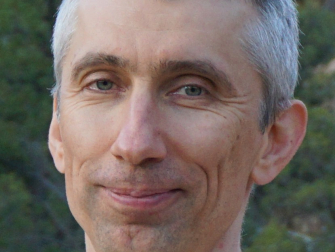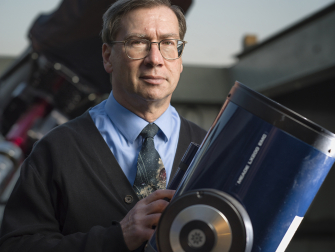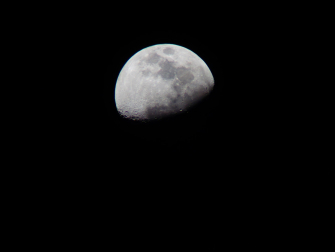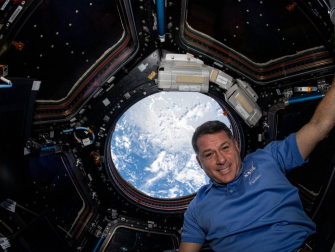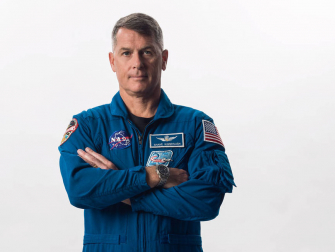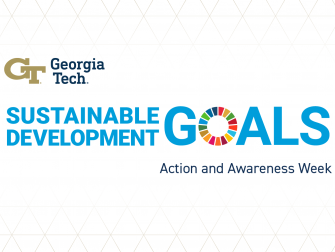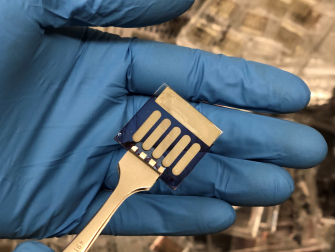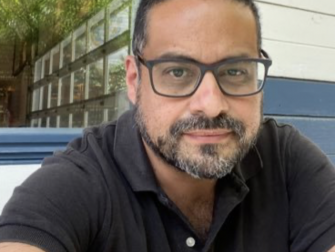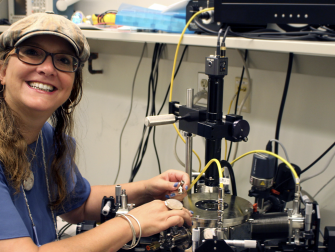Georgia Tech will celebrate its 25th annual Earth Day with a 4-day schedule of events this week.
Joined by alumni and friends, the College of Sciences welcomes new professors, presents annual faculty honors alongside inaugural staff and research faculty awards in recognition of individual excellence and community accomplishments.
An announcement from Georgia Advance Technology Ventures (GATV), a cooperative organization of Georgia Tech, and Trammell Crow Company (TCC), the project developer, shares details of what will become a major life science innovation hub for the Atlanta region.
Nearly 50 College of Sciences faculty are receiving Center for Teaching and Learning awards for excellence in teaching.
Female Founders is open to startup teams that are founded or co-founded by women, with 25 chosen for each cohort. The program is open to all Georgia Tech students, community teams, and researchers from other institutions in the United States. Apply by April 7, 2022.
U.S. News and World Report ranks all six College of Sciences schools among the best overall science programs in the nation for graduate studies. In the 2023 edition, Biology rises 17 places, Earth Sciences by 10, Mathematics by five, and Psychology by six. Specialty programs also take home high marks, with six in the top 20.
In its second year, the fellowship is expanding to include all colleges across Georgia Tech.
College of Sciences faculty research papers and student theses are spotlighted by the Georgia Tech chapter of Sigma Xi, the Scientific Research Society.
The next public night is March 10.
NASA astronaut and alumnus Shane Kimbrough will spend Friday, March 4, on campus for a series of events.
The campus community is invited to participate in a variety of events that increase awareness of and encourage actions that advance the 17 United Nations Sustainable Development Goals.
The future of organic semiconductors is bright, thanks to their ability to react to, and produce, light on a much more affordable, sustainable scale than traditional semiconductors. But first scientists must learn more about the forces behind their light-emitting qualities, so-called Frenkel biexcitons. Now, a team of researchers led by Georgia Tech has found a way to measure and track them.
- ‹ previous
- 15 of 24
- next ›

